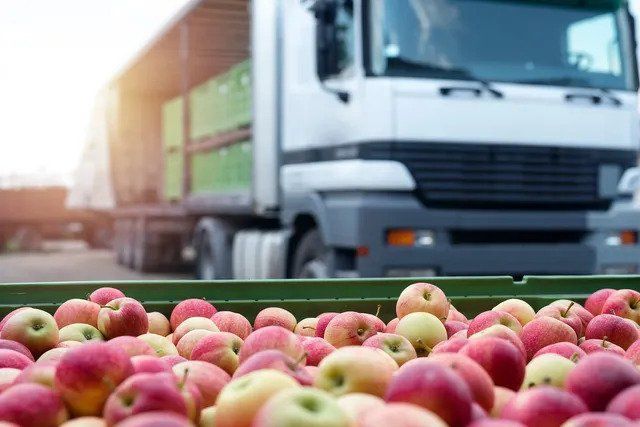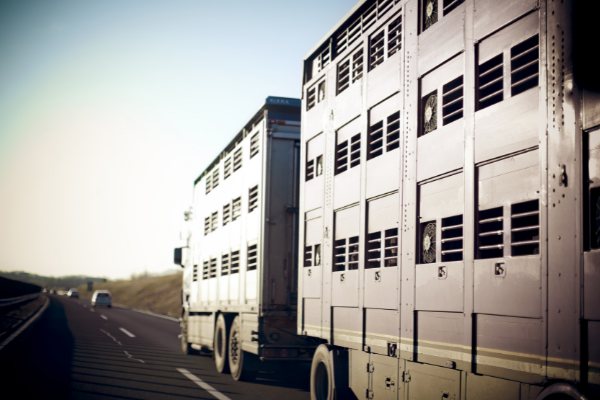BY:
SHARE:

Additional information on the Border Target Operating Model (BTOM) has been published, confirming that Export Health Certificates will not be required on certain low-risk imports of POAO (Products of Animal Origin).
The update includes tariff data to support the definition of goods considered low risk at import to GB and, therefore, are not subject to requiring an EHC to support regulatory compliance.
Re-Exports (Triangular Trade) Update
Under the Border Target Operating Model (BTOM), low-risk goods imported to Great Britain do not need a health certificate.
Where goods for re-export originated outside the EU, a certifying officer can now rely on information in the original Export Health Certificate (EHC) that accompanied the goods on import into GB, to enable re-certification of a commodity for export from GB.
From 30 April 2024: Low-risk POAO from ROW for re-export from the UK
A GB importer will no longer need a health certificate to import some low-risk POAO from non-EU countries to Great Britain. However, this may cause issues, should these imported goods be re-exported from GB to the EU or ROW, as certifiers may need additional supporting data to support that re-export.
Guidance on re-exports and relevant supporting information for certifiers can be found at the link below:
https://www.gov.uk/guidance/export-food-and-agricultural-products-special-rules
Further information on how to determine the Risk Category of goods for import can be found at the link below:
If further information or guidance is required, businesses are advised to contact the Animal and Plant Health Agency (APHA) Centre for International Trade at the email address below:
Email: exports@apha.gov.uk
EU Risk Category – Commodity Code Update
Defra has updated the trader guidance on the risk categorisation of EU animal products under the BTOM. The update is intended to expand the risk categorisation for existing guidance, rather than change it and provide additional detail for stakeholders.
The BTOM EU risk categorisation sets out the risk categories in a table format, covering all animal and animal product types, including a useful look-up tool, designed to help the trader determine the BTOM risk category using the Tariff code as a reference.
The look-up tool is designed to assist traders in determining the BTOM risk category of a specific commodity. It does not set out all import requirements for all SPS commodity codes, nor does it cover all commodity codes for import.
The trader remains responsible for ensuring that all goods are categorised correctly in line with the published BTOM categorisation summary tables.
A further link with related rules is below:
Import summary tables in searchable format link below:
The onus of accurate categorisation of goods for import remains with traders, who must understand their products for import in regulatory terms and know their products’ end-use. This is in addition to the trader’s obligation to ensure that the correct SPS classification is presented to the authorities to support any applicable import checks that products may need to undergo to support a border crossing.
The most recent update to the tool adds additional commodity code information for the POAO risk categorisation for the following tariff codes:
1504101000
1504109100
https://www.trade-tariff.service.gov.uk/commodities/1504109100
1504109900
1504201010
1504201090
1504209000
https://www.trade-tariff.service.gov.uk/commodities/1504209000
IPAFFS searchable codes for CHED-P Commodities included with CHED-A IPAFFS codes to follow:
IPAFFS codes for CHED-P commodities are also included in this searchable list. When searching the list using the ten-digit commodity code, a trader can view information on the IPAFFS commodity code and the risk rating.
An update to the searchable list with CHED-A commodity IPAFFS codes will follow.
Importers and import agents are obliged to pre-notify the GB authorities using IPAFFS before the following goods arrive for import into GB from the EU:
- live animals
- germinal products
- animal by-products (ABP)
- high-risk food and feed not of animal origin (HRFNAO)
- products of animal origin (POAO)
- composite food products (if applicable)
- plants and plant products.
More Risk Categories for EU countries can be found at the link below:
OneCall™ Email assistance as and when required; A one-call solution for all your import, export and customs enquiries. Export help. Import help. Customs help.
Stay informed about customs and international trade matters by subscribing to our OneCall™ service. This comprehensive offering includes a dedicated email helpline for support, timely practical updates direct to your inbox (Did You Know?), monthly UK Customs & Trade Briefings and access to an interactive members' area with an exclusive community for our subscribers.
International Trade Updates & Spotlight Newsletter
Subscribe to our free information emails covering international trade topics...












